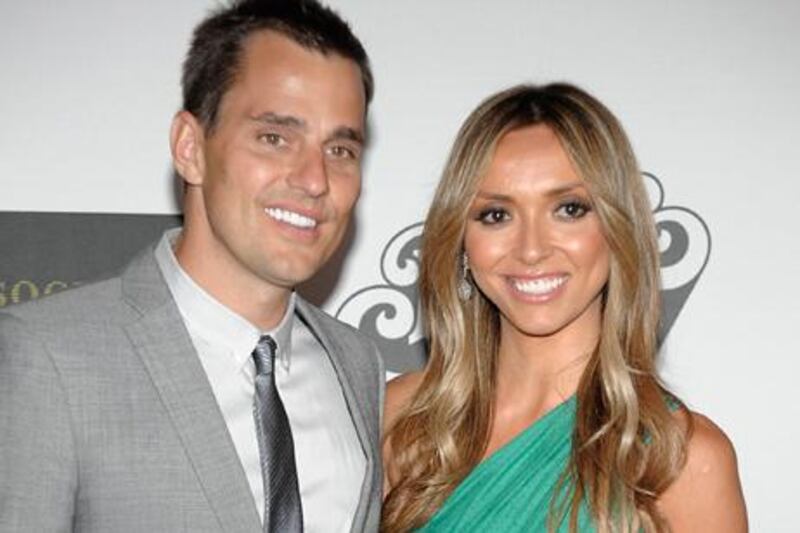So you can swallow exotic insects, belt out power ballads and backstab unsuspecting housemates with the best of them. Impressive credentials - but if you think that's all there is to being a reality star, you're about a decade too late.
As more shows about real housewives, real hoarders and real rich kids debut and renew, reality stardom is increasingly interrupted by real life - mental illness, health scares and even death. The genre that was once escapist entertainment is morphing into unscripted, and often uncomfortable, drama. A participant needs to be pretty strong to stick it out.
Take Giuliana Rancic. When the E! News host and her husband Bill scored their own reality show, Giuliana and Bill, in 2009, the newlyweds couldn't have anticipated what the cameras would capture over the next few years: infertility, a miscarriage and now, breast cancer.
Rancic revealed her cancer diagnosis last week on the Today show and underwent surgery the following day. She expects to return to work this week, but still has weeks of radiation therapy ahead of her. It's not clear how much of Rancic's ordeal will be broadcast on Giuliana and Bill - but if the fact that Bill provided hospital pictures to People magazine is any indication, she isn't planning to shy away from it.
Reality stars have handled real life in a variety of ways. There's Playboy cover girl Kendra Wilkinson, who addressed her battle with postpartum depression in a tell-all book, but kept it largely out of her reality show. And then there's Britain's Jade Goody.
Goody was a two-time veteran of the UK's Big Brother series, who parlayed her wild-child appeal into tabloid cred and very real wealth. But when she joined an Indian version of Big Brother in August 2008, she received shocking news on her second day on the set. They broke it to her on camera: she had cervical cancer. Goody returned to Britain for treatment, which she agreed to have documented in a spin-off, Living with Jade. She died in March 2009.
There's a lot about reality TV that isn't real. Former participants, ex-producers and eyewitnesses have come forward to share insider titbits. Cast members are given call-sheets outlining their shooting schedule. Directors prompt them to do certain things. The footage is edited together in such a way that a conversation can be transformed into a confrontation.
Those details don't matter when viewers are watching a person face cancer on screen. The comment boards on fan websites are currently flooded with women proclaiming Rancic has inspired them to get mammograms. In the year after Goody died, a British report showed an additional 400,000 Britons went to get tested for cervical cancer. The country's health secretary declared that Goody's "bravery and openness" was going to save hundreds of lives.
But what about the participants? Yes, they're paid for their appearance - and then what?
This summer, The Real Housewives of Beverly Hills' Russell Armstrong committed suicide in the midst of his marriage breaking down on national television. The Bravo network announced it will air the season that leads up to his death, in addition to a special episode where the show's other participants will talk about how they feel about it.
National Public Radio's Linda Holmes addressed fans of the reality genre in an August blog post.
"If you want to watch some of this stuff, you have to live with the fact that it exploits emotionally charged situations and could easily cause psychological harm to people, whether it was responsible for what happened to Russell Armstrong or not," she wrote.
Then she proposed a code of ethics for producers. Among her suggestions: Participants should receive after-appearance counselling, be allowed to communicate with their friends and family and not be forced into repeat appearances.
Holmes isn't calling for an end to reality TV - that would be futile. It's popular and it's inexpensive to produce. Even if Jersey Shore's Snooki throws in the towel, there will be another slightly delusional 20-something willing to take her place for those 15 minutes of fame - whatever they might hold. But Holmes is asking for some ground rules.
The industry has been quiet on its troubles, but consider how Craig Gilbert, at age 85, is looking back on his role as the creator of An American Family, a 1970s documentary that caught the breakdown of a marriage on camera. Gilbert told The New Yorker in April this year that he still struggles with his role in what happened. "I've never resolved it. I didn't know what I had wrought. I still don't."





